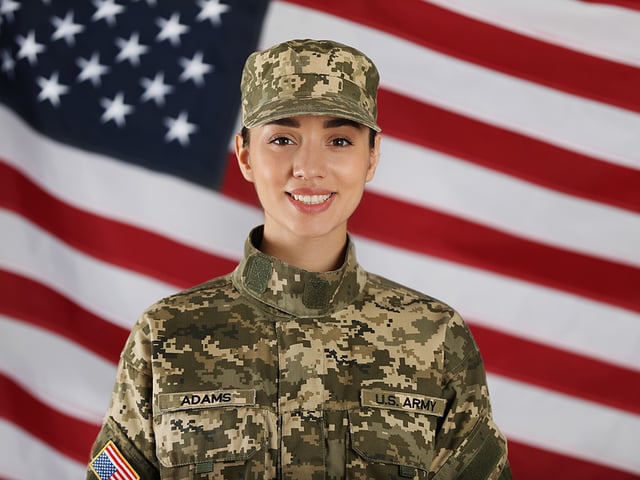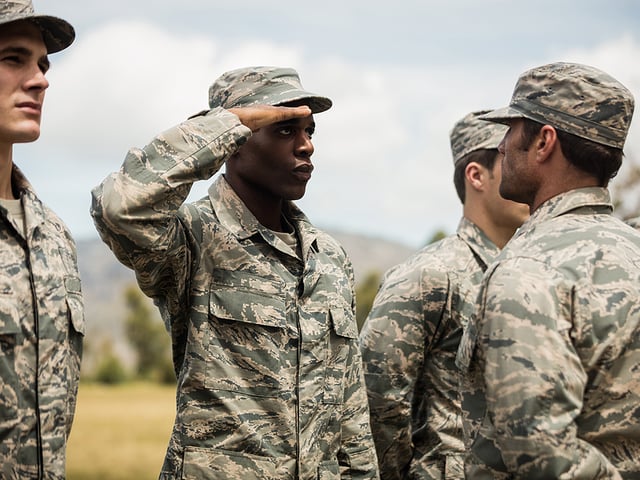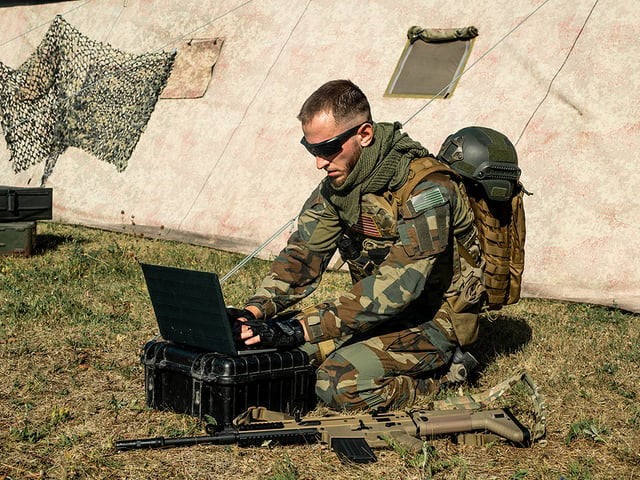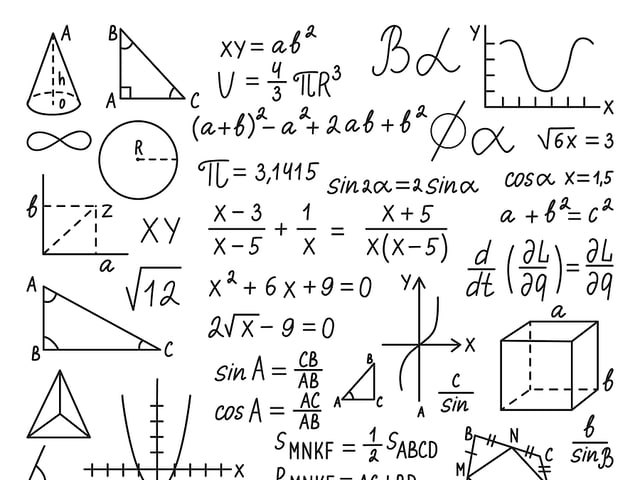
U.S. Army Height and Weight Standards for Females
The U.S. Army’s commitment to maintaining a robust, physically fit, and capable fighting force has resulted in the institution of various guidelines and regulations. Among these, the height and weight standards stand out due to their impact on recruitment and retention of soldiers. Let’s delve deeper into the nuances of these standards for women serving in the Army.
The Importance of the Height and Weight Standards
The Army’s height and weight standards aren’t arbitrary numbers set in place but are meticulously designed considering various factors:
-
Physical Readiness: In battlefields or during intensive training exercises, physical stamina and endurance can mean the difference between success and failure. These standards ensure that every female soldier can withstand the demands of military operations.
-
Equipment and Uniform Design: Military gear and uniforms are standardized to some extent. Having a weight and height guideline helps ensure that equipment fits correctly and functions as intended, reducing potential risks.
-
Long-Term Health: The military lifestyle can be physically taxing. Ensuring that soldiers maintain a healthy weight reduces the risk of health complications both during service and in retirement.
The Calculation Behind the Standards
While the exact numbers for height and weight standards are laid out in tables based on age groups, the underlying logic and calculation involve:
-
Body Mass Index (BMI) Considerations: While the Army doesn’t strictly use BMI, the concept is similar. A balance between height and weight gives an initial indication of a person’s physical fitness.
-
Allowance for Muscle Mass: Muscle weighs more than fat. The Army recognizes that someone could be over the weight standard for their height but still be in excellent physical condition. Therefore, when someone exceeds the weight standard, they undergo a body fat measurement.
-
Age Adjustments: As the human body ages, metabolism changes and muscle mass can decrease, leading to weight changes. The Army’s standards take these natural progressions into account, making allowances for different age groups.
Variances and Exceptions
While the height and weight standards are clear, there are instances when exceptions or variances are considered:
-
Pregnancy: Female soldiers who are pregnant will not be held to the usual weight standards during their pregnancy and for a certain period postpartum.
-
Medical Conditions: Certain medical conditions can affect weight. In these cases, the Army may grant temporary or permanent waivers, depending on the situation.
Height and Weight Chart for Females in the U.S. Army
The height and weight standards set by the U.S. Army ensure that all soldiers, regardless of age or gender, are in the best possible shape to serve. For females, these standards differ based on age groups. Here, we delve deeper into the weight and height guidelines for four specific age categories: 17-20, 21-27, 28-39, and 40+.
Remember, if a soldier exceeds the stipulated weight for their height, body fat measurements are taken to further assess fitness levels.
Height and Weight Standards for Females 17-20 in the U.S. Army
The formative years from late teens to early twenties witness rapid changes in the human body. The U.S. Army understands this transitional phase and thus, has tailored height and weight standards for females in the age group of 17 to 20. These standards ensure that the young soldiers joining the force are in prime physical condition, ready to endure the rigors of military service. Below is the table showcasing the height and weight criteria for this age group:
| Height (in inches) | Min Weight (lbs) | Max Weight (17-20 yrs) |
|---|---|---|
| 58 | 91 | 119 lbs. |
| 59 | 94 | 124 lbs. |
| 60 | 97 | 128 lbs. |
| 61 | 100 | 132 lbs. |
| 62 | 104 | 136 lbs. |
| 63 | 107 | 141 lbs. |
| 64 | 110 | 145 lbs. |
| 65 | 114 | 150 lbs. |
| 66 | 117 | 155 lbs. |
| 67 | 121 | 159 lbs. |
| 68 | 125 | 164 lbs. |
| 69 | 128 | 169 lbs. |
| 70 | 132 | 174 lbs. |
| 71 | 136 | 179 lbs. |
| 72 | 140 | 184 lbs. |
| 73 | 144 | 189 lbs. |
| 74 | 148 | 194 lbs. |
| 75 | 152 | 200 lbs. |
| 76 | 156 | 205 lbs. |
| 77 | 160 | 210 lbs. |
| 78 | 164 | 216 lbs. |
| 79 | 168 | 221 lbs. |
| 80 | 173 | 227 lbs. |
Height and Weight Standards for Females 21-27 Years in the U.S. Army
For the U.S. Army’s female soldiers aged 21 to 27, there are specific height and weight guidelines in place. These standards aim to uphold both their health and combat readiness. While most individuals in this age group have settled into their adult physiques, knowing the right weight range for each height remains crucial. Presented below is the table laying out the weight benchmarks for females in this age category:
| Height (in inches) | Min Weight (lbs) | Max Weight (21-27 yrs) |
|---|---|---|
| 58 | 91 | 121 lbs. |
| 59 | 94 | 125 lbs. |
| 60 | 97 | 129 lbs. |
| 61 | 100 | 134 lbs. |
| 62 | 104 | 138 lbs. |
| 63 | 107 | 143 lbs. |
| 64 | 110 | 147 lbs. |
| 65 | 114 | 152 lbs. |
| 66 | 117 | 156 lbs. |
| 67 | 121 | 161 lbs. |
| 68 | 125 | 166 lbs. |
| 69 | 128 | 171 lbs. |
| 70 | 132 | 176 lbs. |
| 71 | 136 | 181 lbs. |
| 72 | 140 | 186 lbs. |
| 73 | 144 | 191 lbs. |
| 74 | 148 | 197 lbs. |
| 75 | 152 | 202 lbs. |
| 76 | 156 | 207 lbs. |
| 77 | 160 | 213 lbs. |
| 78 | 164 | 228 lbs. |
| 79 | 168 | 224 lbs. |
| 80 | 173 | 230 lbs. |

Height and Weight Standards for Females 28-39 Years in the U.S. Army
As females transition from their late twenties into their thirties, there can be physiological changes that influence body composition. Recognizing this, the U.S. Army has a set of specific height and weight standards for females aged between 28 to 39. These standards consider the natural progression of the human body, striking a balance between optimal health and ensuring operational readiness. Here is a detailed breakdown of the weight standards for this age category:
| Height (in inches) | Min Weight (lbs) | Max Weight (28-39 yrs) |
|---|---|---|
| 58 | 91 | 122 lbs. |
| 59 | 94 | 126 lbs. |
| 60 | 97 | 131 lbs. |
| 61 | 100 | 135 lbs. |
| 62 | 104 | 140 lbs. |
| 63 | 107 | 144 lbs. |
| 64 | 110 | 149 lbs. |
| 65 | 114 | 154 lbs. |
| 66 | 117 | 158 lbs. |
| 67 | 121 | 163 lbs. |
| 68 | 125 | 168 lbs. |
| 69 | 128 | 173 lbs. |
| 70 | 132 | 178 lbs. |
| 71 | 136 | 183 lbs. |
| 72 | 140 | 188 lbs. |
| 73 | 144 | 194 lbs. |
| 74 | 148 | 199 lbs. |
| 75 | 152 | 204 lbs. |
| 76 | 156 | 210 lbs. |
| 77 | 160 | 215 lbs. |
| 78 | 164 | 221 lbs. |
| 79 | 168 | 227 lbs. |
| 80 | 173 | 233 lbs. |
Height and Weight Standards for Females 40+ Years in the U.S. Army
As individuals move into their forties and beyond, the body naturally experiences changes in metabolism, muscle mass, and bone density. The U.S. Army, acknowledging these physiological shifts, has set specific height and weight standards for females aged 40 and over. These standards are designed to ensure the health, vitality, and combat readiness of soldiers, even as they progress in age. Here’s a comprehensive look at the weight standards tailored for this more mature age group:
| Height (in inches) | Min Weight (lbs) | Max Weight (40+ yrs) |
|---|---|---|
| 58 | 91 | 124 lbs. |
| 59 | 94 | 128 lbs. |
| 60 | 97 | 133 lbs. |
| 61 | 100 | 137 lbs. |
| 62 | 104 | 142 lbs. |
| 63 | 107 | 146 lbs. |
| 64 | 110 | 151 lbs. |
| 65 | 114 | 156 lbs. |
| 66 | 117 | 161 lbs. |
| 67 | 121 | 166 lbs. |
| 68 | 125 | 171 lbs. |
| 69 | 128 | 176 lbs. |
| 70 | 132 | 181 lbs. |
| 71 | 136 | 186 lbs. |
| 72 | 140 | 191 lbs. |
| 73 | 144 | 197 lbs. |
| 74 | 148 | 202 lbs. |
| 75 | 152 | 208 lbs. |
| 76 | 156 | 213 lbs. |
| 77 | 160 | 219 lbs. |
| 78 | 164 | 225 lbs. |
| 79 | 168 | 230 lbs. |
| 80 | 173 | 236 lbs. |
What If You Exceed the Weight Limit?
Meeting the weight standards of the U.S. Army is crucial for operational readiness and long-term health. But what happens if you tip the scales beyond the given range?
The U.S. Army understands that weight can be influenced by various factors, one of the most significant being muscle mass. Since muscles are denser than fat, an individual might exceed the weight limit because of a muscular physique rather than excess body fat. To distinguish between the two and ensure that the soldiers are within healthy body composition limits, the Army uses a body fat assessment.
Body Fat Assessment: A Comprehensive Approach
When a female soldier or recruit exceeds the standard weight limit for their height, the Army doesn’t disqualify her immediately. Instead, it undertakes a body fat assessment to determine if her weight is due to muscle or if it’s indeed due to excessive body fat.
Using various measurement techniques such as the tape test, the Army evaluates the soldier’s waist, hip, and neck circumference. These measurements are then used to calculate the individual’s body fat percentage.
Body Fat Standards for Females
The Army has set maximum body fat percentage standards for females across different age groups to account for the natural changes in body composition that occur with aging:
| Age Group | Max Body Fat Percentage |
|---|---|
| 17-20 | 30% |
| 21-27 | 32% |
| 28-39 | 34% |
| 40+ | 36% |
If a soldier exceeds both the weight and body fat standards, she might be provided guidance and time to meet the requirements, ensuring her health and combat readiness. The U.S. Army’s dual assessment - considering both weight and body fat - showcases the institution’s dedication to maintaining a healthy and fit force, while also recognizing individual body differences and ensuring fair evaluation.
Marching Forward: Army Standards & Preparation
Choosing to join the U.S. Army is a commendable decision that comes with its set of prerequisites. One such crucial criterion is meeting the specified height and weight standards. Staying within these benchmarks ensures that you’re not just physically fit, but also mentally prepared for the rigors and demands of military life.
Another pivotal step in the Army recruitment journey is the Armed Services Vocational Aptitude Battery (ASVAB). This examination evaluates your skills and determines your qualifications for enlistment. To excel in the ASVAB and set yourself on a successful path within the U.S. Army, thorough preparation is paramount. Our website offers an array of resources, including practice tests, study guides, and flashcards, tailored for ASVAB aspirants. By leveraging these tools, you can confidently navigate the exam and edge closer to your dream of serving with honor.
To every woman with aspirations of donning the Army uniform and serving her nation – we salute your spirit and determination. Best of luck in your endeavors!
Keep Reading

Armed Services Vocational Aptitude Battery Blog
What is the ASVAB Test?
The Armed Services Vocational Aptitude Battery, known as the ASVAB, is …

Armed Services Vocational Aptitude Battery Blog
Military MOS Codes
Military Occupational Specialty (MOS) codes are an integral part of the…

Armed Services Vocational Aptitude Battery Blog
Important Math Formulas to Know for the ASVAB
What Type of Math Is on the ASVAB? Mathematics for the ASVAB test is m…